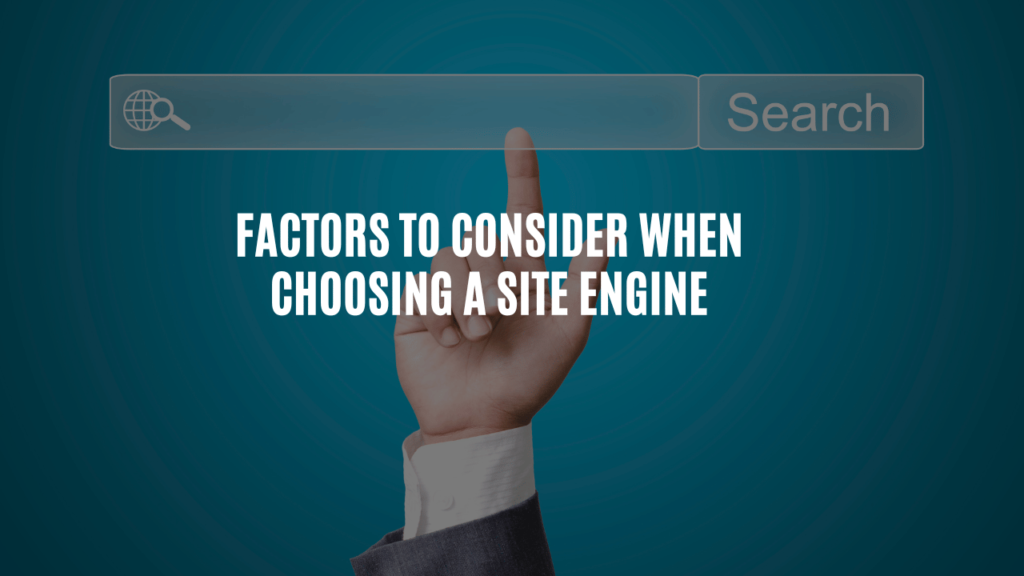Choosing a site engine for your company website can make all the difference. It shapes how your website works and whether or not it is scalable enough, and it generally affects how user-friendly it feels across devices. Various choices exist for you to choose from when necessary, which can be challenging, but then again, this guide will assist in narrowing down such considerations: What factors should one look at? How do they compare with others, such as Drupal, WordPress, and Joomla!, which we discussed previously?
Understanding Your Business Needs
It is essential that you comprehend your business needs before exploring the nuances of various site engines, such as Magento or WordPress. Part and parcel of this is finding out why one has chosen to create their website in the first place. Is it a blog, online store, portfolio site, or perhaps a service-provider entity that interests you? Every kind of internet portal possesses its characteristics and features.
Identifying Your Target Audience
It’s essential to understand who is visiting your site. For instance, there may be better options than a geek site engine. Consider what people use your site’s content for and how to make it enjoyable.
Defining Your Website’s Purpose
It will significantly depend on what you intend to do with your website, such as choosing a site engine as the website’s purpose, which will dramatically influence it. For instance, for e-commerce websites, one has to select a site engine with robust shopping cart functionalities, while when talking about blogs, WordPress is the best content management system (CMS) available. You may need appointment scheduling features if you have a service-based website. It will help you narrow down your picks if you can clearly define why you want to have the site built.
Factors to Consider When Choosing a Site Engine

When choosing a site engine, several things must be considered. These include its simplicity and customization options.
Ease of Use
One would argue that user-friendly design is important for significant users. An intuitive site structure and simple setup processes are essential for any site engine. Finding services that allow you to drag elements around and provide simple instructions to better understand everyone is important.
Customization Options
Customization is significant for a website to be unique. It is always wise to find out whether the site engine encourages one to easily change the template by providing various themes. It has made it possible to do custom coding and integrate third-party plugins, making these two essential features possible.
Scalability
Your business is likely to grow, and so should your website. Ensure the site engine can support growth in traffic and content without reducing its performance. Please search for platforms that have scalable solutions and different pricing tiers.
Security
Security should never be compromised. The engine should be able to incorporate SSL certificates and frequent updates, among other common threats like DDoS attacks and malware.
Popular Site Engines in the Market
Different site engines are available, each with its own strengths and weaknesses. Here, we will take a look at some of the most popular ones.
WordPress
WordPress is a trendy choice for websites. It is very flexible and can be customized with many add-ons, such as plugins, plugins, plugins, and more. Whether your website is a blog, a corporate website, an e-commerce site, or something else, WordPress can be customized to fit your company’s needs in different ways.
Shopify
An e-commerce platform called Shopify which is easy to use and has many features. It offers an all-encompassing solution that covers product listing establishment to payment gateway integration, which is why it fits well with web-based stores.
Wix
Wix is a drag-and-drop builder and user-friendly site engine. It offers many design templates and customization options for small businesses and personal websites.
Squarespace
People know Squarespace because of its beautiful design patterns and robust features. It is suitable for innovators and small enterprises that care about how something looks and is simple to use.
Joomla
Joomla is a powerful content management system that offers flexibility and user-friendliness in equal measure. This makes it suitable for more complex websites, such as community portals and e-commerce sites.
Comparing Site Engines Based on Features and Functionalities
One must compare and contrast varied sites’ engines to be able to base their decisions on informed decisions.
User Interface and Design Flexibility
It’s essential to consider how easy it is for you to design and customize your website because WordPress and Wix offer extensive design options, while Shopify and Squarespace allow the user to experience a website that looks simpler but is more advanced than any other website out there.
PluginPluginPluginPluginPlugin and Extension Availability
PluginsPluginsPluginsPluginsPlugins and extensions add functionality to your website. The variety of plugins on WordPress is vast, and there are e-commerce apps on Shopify. Look at the plugin ecosystems in all the website engines available to ensure they have what you want.
SEO Capabilities
Driving natural traffic is so vital to search engine optimization. WordPress and Squarespace have a lot of SEO power because they have many plugins you can use, aside from their built-in tools, while optimizing your website. On the other hand, Shopify has specific search engine optimization features that are used by electronic commerce sites.
Assessing Your Business Needs and Goals
Short-Term vs. Long-Term Goals
Identify both your immediate and future needs. A site that works well for a small startup might not be enough as your business grows. When selecting an engine, consider scale and distant plans.
Content Management
Evaluate how well the content is managed on this website. Blogs and news articles need a robust Content management system (CMS), while e-commerce sites need compelling product management features.
E-commerce Requirements
Check e-commerce solutions offered by site engines that prioritize running an online store. Investigate the presence of inventory management, payment gateways, and customer support integrations, among other features you need from such engines in HTML snippets.
Technical Support and Resources

Reliable technical support and resources are essential, especially if you need to be tech-savvy.
Customer Support
Find out if customer support is available so that you can ensure quality. For instance, Shopify and Wix are reputed for their quality customer service. It is essential to check that support is available whenever you require it, whether through live chat, email, or phone.
Documentation and Community
A very supportive community with lots of documentation would be beneficial. WordPress has a massive team of people who discuss in forums or provide instructions that help other users. It is easier to learn and solve problems when plenty of materials are available.
Pricing and Cost Considerations
Pricing is a significant factor in choosing a site engine. Consider not only the initial cost but also the long-term expenses.
Subscription Plans
Many site builders have some levels of offerings people can sign up for, and subscribers should consider whether they suit their requirements after analyzing what each package comes with. Wix and Squarespace are two services offering pricing based on features and storage.
Additional Costs
Be aware of additional costs such as domain registration, SSL certificates, and premium plugins or themes. Calculate the total cost of ownership to avoid any surprises down the line.
Making the Final Decision and Getting Started
After evaluating all the factors, it’s time to make a decision.
Testing the Platform
Before committing, take advantage of free trials or demo versions. This allows you to test the platform’s features and usability and ensure it meets your expectations and requirements.
Setting Up Your Site
Once you’ve chosen a site engine, follow the setup process. Most platforms provide step-by-step guides to help you get started. Customize your design, add your content, and configure essential settings.
Launching Your Website
Before launching, thoroughly test your website. Check for broken links, ensure all functionalities work correctly, and optimize for SEO. Once everything is in place, publish your site and start promoting it.
Conclusion
Choosing the best site engine for your business needs is a crucial decision that requires careful consideration of various factors. By understanding your business needs, comparing features, and assessing costs, you can make an informed choice that will support your business goals now and in the future. Take the time to explore your options, test platforms, and seek support when needed to ensure your website is a powerful tool for your business.
